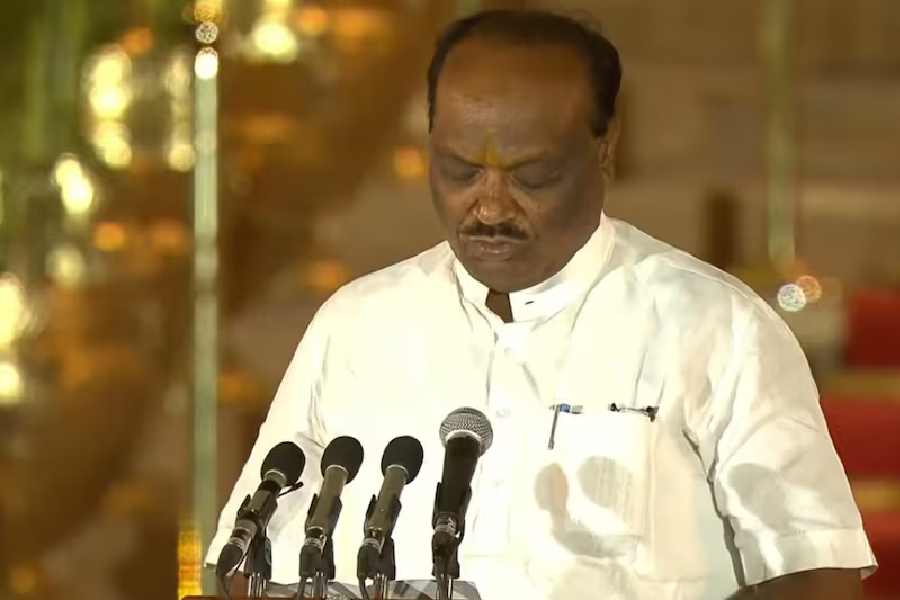Tribal families displaced from Chhattisgarh due to leftwing extremism are unwilling to return to the state despite the availability of rehabilitation schemes and security arrangements through security camps, the government told Parliament.
Replying to a question by Congress MP Phulo Devi Netam, Union Minister of State for Tribal Affairs Durgadas Uikey told the Rajya Sabha that the state government had formed teams to conduct surveys in the adjoining districts of neighbouring Telangana and Andhra Pradesh to identify tribal families displaced from Chhattisgarh due to leftwing extremism.
He said a total of 10,489 tribal people from 2,389 families were displaced from the Sukma, Bijapur and Dantewada districts due to leftwing extremism.
A total of 9,702 tribal people were displaced from Sukma, 579 from Bijapur and 208 from Dantewada.
"The families so affected were unwilling to return to their original villages/place despite providing them the information of rehabilitation schemes of the state government and the security arrangement available through security camps," the minister said.
The Union Tribal Affairs Ministry and the National Commission for Scheduled Tribes had, in July 2019, asked Chhattisgarh, Odisha, Andhra Pradesh, Telangana and Maharashtra to conduct a survey to ascertain the number of tribal people displaced due to leftwing extremism before December 13, 2005, so that a process could be initiated to rehabilitate them.
The states were given three months to complete the survey.
In October 2019, the home ministry also wrote to these state governments to determine how many tribal people had been displaced from Chhattisgarh.
According to tribal rights activists who have repeatedly raised the issue with the National Commission for Scheduled Tribes and the tribal affairs ministry, an estimated 50,000 tribal people were displaced from Chhattisgarh due to leftwing extremism. They now live in 248 settlements in the forests of Odisha, Andhra Pradesh, Telangana and Maharashtra.
These people are living in deplorable conditions without access to drinking water and electricity. They receive lower wages and most of them do not have ration cards or voter IDs, making it impossible to prove their citizenship, one tribal rights activist told PTI.
Rights activists claim these states do not recognise these people as tribals. They have no rights over forest land and remain excluded from all social security benefits.
Except for the headline, this story has not been edited by The Telegraph Online staff and has been published from a syndicated feed.











